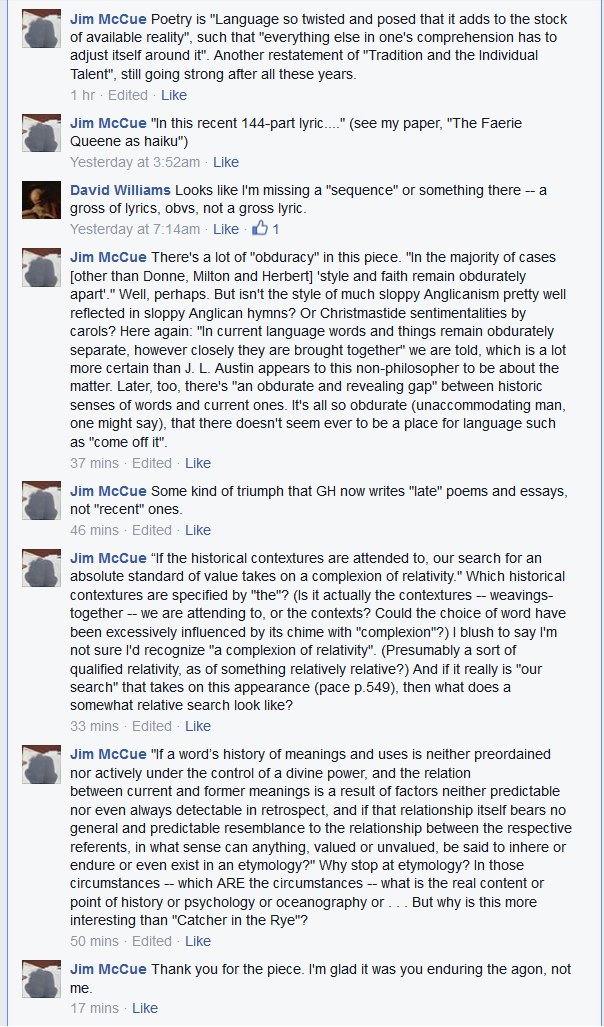I’m happy to say  that Modern Philology has just published a longish article of mine on etymology in Geoffrey Hill’s work, called “All corruptible things: Geoffrey Hill’s Etymological Crux.”
that Modern Philology has just published a longish article of mine on etymology in Geoffrey Hill’s work, called “All corruptible things: Geoffrey Hill’s Etymological Crux.”
A self-archived copy of the article may be downloaded by clicking here.
[Note that a revised version of this article appears in my 2020 monograph, The Life of Words: Etymology and Modern Poetry]
In the article I trace out some ways in which the intellectual and theological traditions of etymological study have shaped central, persistent difficulties in Hill’s poetry and poetics. One reason the piece is as long as it is is that these are true difficulties for Hill, and at times intractable. His working out of these cruxes, in poetry and prose, involves first a process of working them in. In my discussion I touch on medieval Jewish and Christian uses of etymology, but most of the focus is on Hill’s engagement with Milton, Coleridge, and Hopkins. There is also some discussion of Eliot, Donne, Blake, and Pavese. Important words that receive attention include: actuality/reality, anacolouthon, arbitrary, atonement, become, be/is (to be), cant, case, crux, fable, métier, solving/solution, and un-/un-re-.
The article covers the poetry up to (but not including) Broken Hierarchies, and essays and lectures up to “‘Legal Fiction’ and Legal Fiction” (2013). How quickly the cutting edge recedes in the field of contemporary poetry!
The full bibliographic reference is:
- David-Antoine Williams, “All corruptible things: Geoffrey Hill’s Etymological Crux” in Modern Philology 112.3 (2015) : 522-553.
Copyright is by the University of Chicago, 2015. The entire issue of Modern Philology 112.3 can be found here, with most of the articles requiring an institutional subscription.
Part of the comment thread from the public FB group, “The Geoffrey Hill Exchange“:
